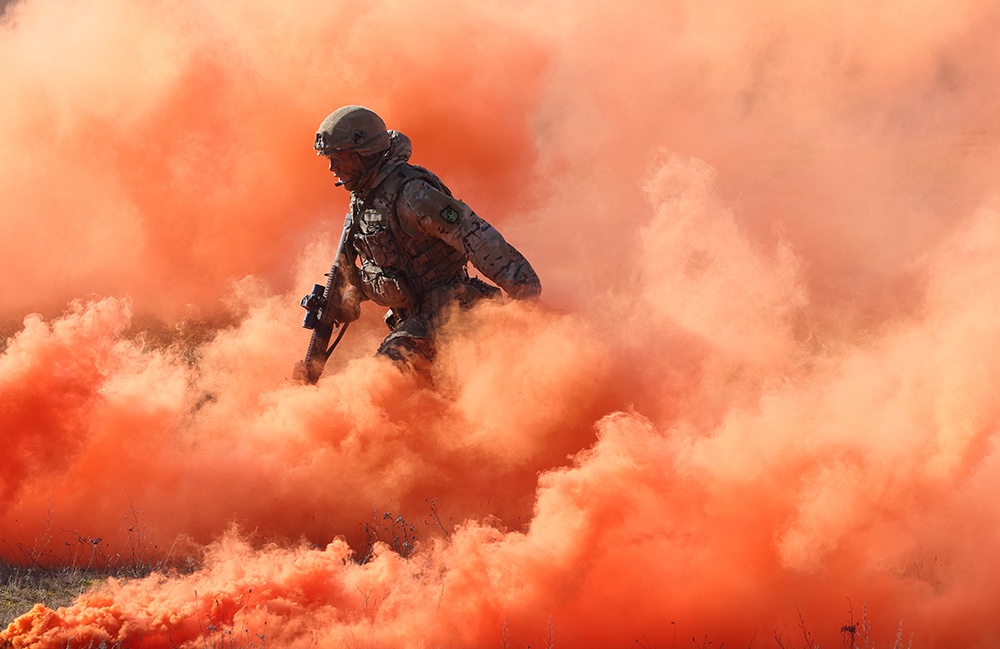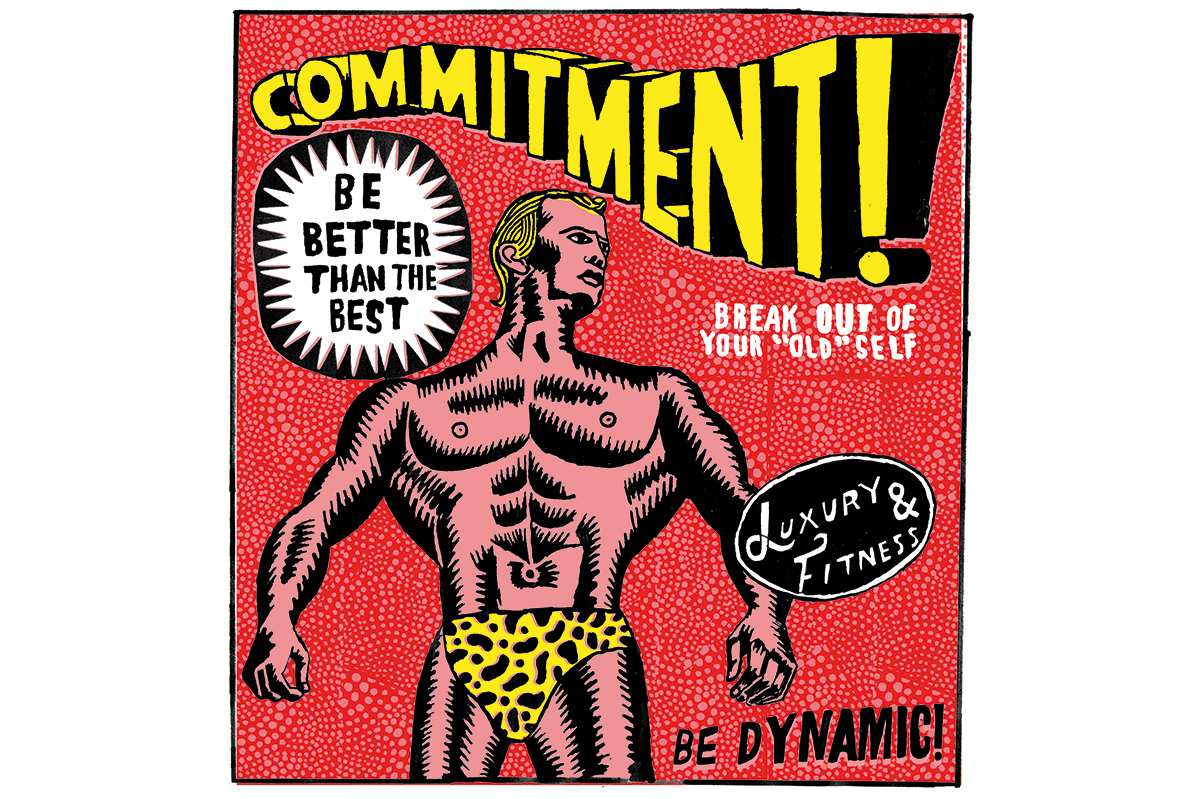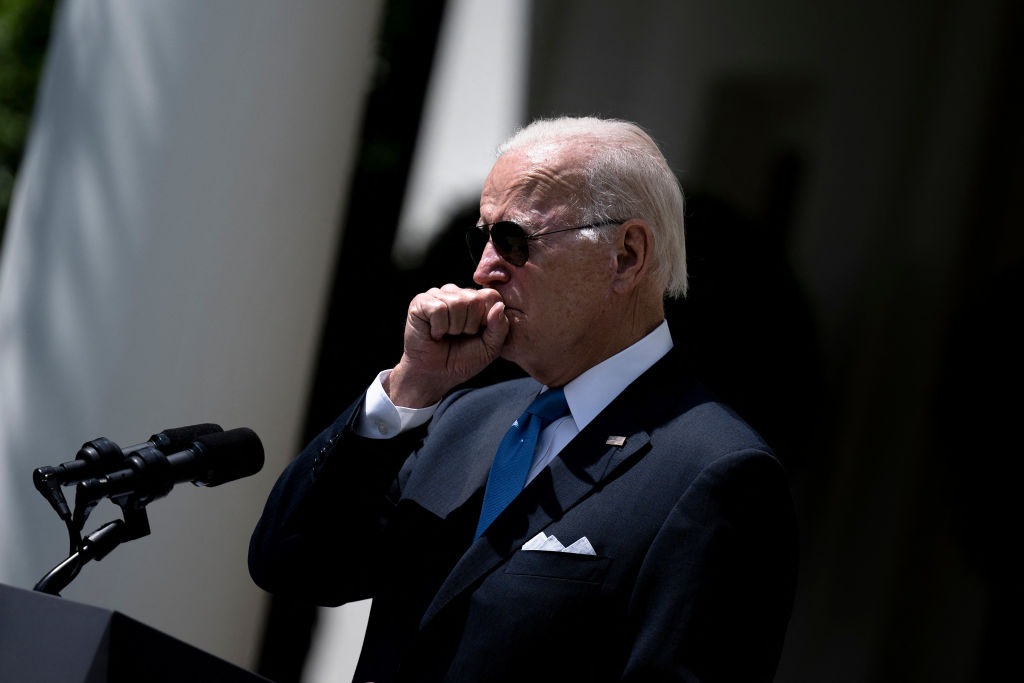“Shit starts to get real, real quick,” recalled former US Marine Tyler Flanigan. An Iraqi sniper had just shot out the tires of his truck, and a key member of his team had been killed. “We were like sitting ducks,” he remembers. “There wasn’t a single day in Iraq when I wasn’t shot at or didn’t have something explode next to me,” says his fellow Marine veteran, Nigel McCourry. Combat experience is hard to forget.
Like a Proustian madeleine, life offers daily triggers that throw them back to a world of nerve-jangling journeys down “IED alley,” the flailing feeling of in a conflict and then the horror of having to gather the body parts of your friends and put them into bags. These former US Marines very bravely discussed their difficulties with processing their trauma in the moving documentary short Dead Dog on the Left. It chronicles their journey through the no-man’s-land of complex post-traumatic stress disorder, or C-PTSD, which in turn triggered alcoholism and suicidal thoughts, to recovery aided by MDMA-led psychotherapy.
Psychedelic therapy doesn’t simply suppress symptoms. It may help reshape the system generating them
Their stories are not unusual. For the past eight years I have been the patron of a small charity called Supporting Wounded Veterans, which helps veterans who have suffered life-changing injuries. Increasingly though, our work is less to do with physical injury and more to do with mental injury, C-PTSD does not necessarily arise until sometime after the trauma. We are the only UK charity conducting medical research with trials using MDMA-led therapy, first at King’s College London and now in Cambridge.
When I was chief of the general staff, the professional head of the British Army, eight years ago, we recognized that while we had an excellent focus on physical health, we were not doing enough for mental health. So we introduced training for commanders at all levels and developed a mental-first-aid assessment. But most importantly we worked to change the culture. We wanted to make it acceptable for soldiers to talk about mental health and to have the confidence to ask for help, secure in the knowledge that it wouldn’t be seen as a weakness. Recently, I took three weeks off and traveled to a retreat to try to understand the effect that multiple year-long combat tours in Afghanistan have had on my own mental well-being. It was an extraordinary experience to bring my feelings out of their sealed box and to begin to understand the impact of the conflicts. I am fortunate. My issues are entirely manageable – but imagine what it is like for those who suffer with complex PTSD.
The guilt of surviving when others have died. Living in a society that does not want to know what you saw, and seems not to care, leaving you feeling betrayed. Losing your sense of purpose and belonging. And the desperation that comes from not being able to find a treatment that works. It should be alarming for all of us that suicide rates in young veterans are two to four times higher than for the rest of the population. Hence my purpose in writing this article – for there is a treatment that potentially works if only our government would get behind it.
At the risk of sounding “woo-woo,” I am talking about psychedelic therapy. It is not new. Between the 1950s and 1970s, LSD, MDMA and psilocybin were used in psychiatric clinics across Europe and North America to treat alcoholism, trauma and end-of-life anxiety. Tens of thousands of patients received care before prohibition abruptly ended the work. The methods were sub-par by modern standards, but one insight endured: these compounds seemed to activate the mind, not just medicate it. Patients described experiences that were vivid, challenging and often profound, and outcomes improved when those experiences were supported before and after with specialized care.
We now have MDMA-led therapy, currently the most rigorously studied psychedelic intervention for C-PTSD. MDMA doesn’t produce hallucinations. Instead, it reduces activity in the amygdala, the part of the brain where fear-based emotions are processed, allowing patients to revisit trauma without being overwhelmed. Psychedelic therapy doesn’t simply suppress symptoms. It may help reshape the system generating them. Neuroscientists now speak of a “window of plasticity” – a brief period in which the brain becomes more responsive, flexible and open to learning. It’s not alchemy. It’s structured, supervised psychological work.
Phase three trials in the US and earlier studies in Australia, Canada and Israel have shown sustained reductions in symptoms. But sadly, despite the FDA designating MDMA-assisted treatment as a “breakthrough therapy,” there is still no formal approval. Even so, momentum continues. In March, the US Department of Defense awarded $9.8 million in grants for MDMA research, including studies with active-duty troops. Regrettably, the UK is not keeping up. Though MDMA and psilocybin show promise in trials, both remain Schedule 1 substances in Britain, labeled as having “no medical use.” That legal status triggers licensing hurdles, a regulatory burden and huge additional costs.
America is investing in healing her warriors while the UK hesitates. Ministers cite regulation, but the deeper issue is a lack of commitment to collaborative research, to therapeutic innovation and to serious investment in mental health care.
I believe Britain doesn’t need to wait for the US to license this treatment. It should recategorize MDMA for research purposes to enable trials to happen more quickly and at a vastly reduced cost. If these trials are as successful as the ones we have seen so far, then the government and the Medicine and Health Care Products Regulatory Agency need to allow full licensing – and at pace. This is a moral obligation to those who serve our country.
The Byzantine emperor Maurice had it right when he said: “The nation which forgets its defenders will itself be forgotten.” All these years later, his warning still feels painfully relevant.
This article was originally published in The Spectator’s September 29, 2025 World edition.


























Leave a Reply